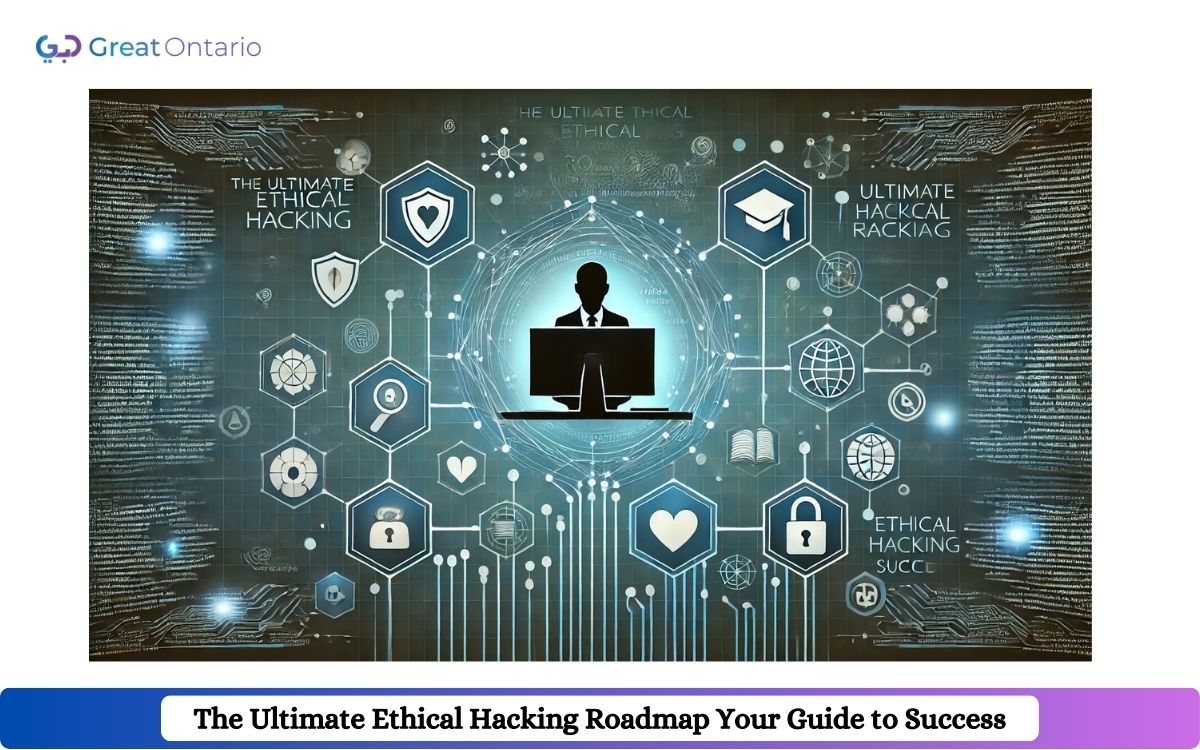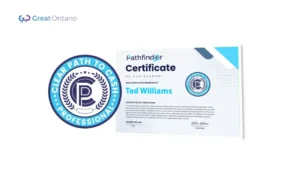Table of Content
-
Introduction to Ethical Hacking
-
Understanding the Ethical Hacking Roadmap
-
Key Stages in the Ethical Hacking Learning Roadmap
-
Stage 1: Fundamentals of Networking
-
Stage 2: Understanding Operating Systems
-
Stage 3: Programming Knowledge
-
Stage 4: Security Concepts
-
Stage 5: Ethical Hacking Tools and Techniques
-
-
Resources for the Ethical Hacking Roadmap
-
Ethical Hacking Courses and Certifications
-
Building a Practical Portfolio
-
Conclusion
Introduction to Ethical Hacking
In today’s digital age, cybersecurity has become a paramount concern. If you want to protect Network security from intrusions, read the ethical hacking roadmap. Need to for you. This guide will walk you through every critical step. It will ensure you have the right tools, skills, and certifications to thrive in the industry. This Ethical Hacking Learning Roadmap is for you. It is for beginners and those looking to improve their skills.
Understanding the Ethical Hacking Roadmap
An ethical hacker roadmap is a guide to the vast field of cybersecurity. This roadmap lists the skills new professionals must master. They are key to becoming successful ethical hackers. This roadmap will help you build a strong base in ethical hacking.
Key Stages in the Ethical Hacking Learning Roadmap
Here’s a detailed look at the stages you should consider in your journey to ethical hacking.
Stage 1: Fundamentals of Networking
Understanding how computer networks operate is crucial. Key topics to cover include:
-
TCP/IP Protocol Suite: Learn about key Security protocols such as TCP, UDP, and IP.
-
Network Devices and Architecture: Grasp how routers, switches, and firewalls interconnect devices.
-
OSI Model: Understand the layers of the OSI Model and their functions.
Resources:
-
Networking books and practice labs
Stage 2: Understanding Operating Systems
A solid command of operating systems is essential for ethical hackers. Focus on:
-
Linux Basics: Many developers build hacking tools for Linux. So, it’s vital to become proficient in it.
-
Windows Security Features: Learn about user permissions, the registry, and Windows Security features.
Resources:
-
Online courses on platforms like Udemy or Coursera.
Stage 3: Programming Knowledge
Knowledge of programming languages can give you a considerable edge. Key languages include:
-
Python: Great for writing scripts and automating tasks.
-
JavaScript: Useful for web application security.
-
SQL: Important for understanding databases and addressing SQL injection vulnerabilities.
Resources:
-
Programming community forums and guides
Stage 4: Security Concepts
This is where you delve deeper into Information security principles. Topics to cover:
-
Vulnerabilities and Cyber Threats: Learn about common vulnerabilities (OWASP Top 10).
-
Cryptography: Understand encryption methods and their applications.
-
Incident Response: Learn how to respond effectively to security breaches.
Resources:
-
Security certification preparation books
Stage 5: Ethical Hacking Tools and Techniques
An Ethical hacker fills their arsenal with tools. Familiarize yourself with:
-
Kali Linux: A distribution created for penetration testing.
-
Metasploit Framework: Understand how to exploit vulnerabilities.
-
Wireshark: For network traffic analysis.
Sites to Explore:
-
GitHub for open-source tools.
-
Official websites of popular ethical hacking tools.
Resources for the Ethical Hacking Roadmap
Utilizing available resources effectively can accelerate your learning path. Consider the following:
-
Online Forums: Join platforms like Reddit’s r/netsec for community support.
-
YouTube Channels: Channels dedicated to ethical hacking tutorials.
-
Books: “The Web Application Hacker’s Handbook” and “Hacking: The Art of Exploitation.”
Ethical Hacking Courses and Certifications
Certifications can provide a substantial boost to your résumé. Some popular options include:
-
Certified Ethical Hacker (CEH): Acknowledged by many employers.
-
Offensive Security Certified Professional (OSCP): Ideal for hands-on penetration testing skills.
-
CompTIA Security+: a good starting point for beginners.
Where to Find Courses:
Building a Practical Portfolio
Hands-on experience is irreplaceable. Here’s how to build your portfolio:
-
Capture The Flag (CTF) Competitions: Participate in CTF challenges like those found on Hack The Box.
-
Open Source Contributions: Engage with ethical hacking projects on GitHub.
-
Create Your Projects: Document and present the security Vulnerability assessments or the tools you have created.
Conclusion
The ethical hacking roadmap will keep you on track. It will make you a skilled ethical hacker. A strong career starts with basic knowledge of networking, OS, programming, and security. With a rise in demand for cybersecurity pros, this roadmap can help you. It will make you a certified ethical hacker. Start your journey today and make a difference in the world of cybersecurity!
FAQs
Q1. What is ethical hacking?
Ethical hacking, or White Hat Hacking, tests computer systems, networks, and web apps. It aims to find vulnerabilities. They do this under the law. Ethical hackers help organizations by finding security flaws. They do this before malicious hackers can exploit them.
Q2. Why should I follow an ethical hacking roadmap?
An ethical hacking roadmap gives a structured learning plan. It ensures you learn the basics of networking, OS, security concepts, and tools. It lists the key resources and skills to be proficient. It will save you time and help you stay on track.
Q3. What qualifications do I need to start learning ethical hacking?
You do not need any formal qualifications to start learning. But a background in IT, networking, or programming can help. The roadmap is for beginners and those with some tech skills.
Q4. How long does it take to become an ethical hacker?
The timeline varies based on your existing knowledge and the time you can dedicate. With consistent effort, most learners can gain basic skills in 6-12 months. However, it may take 1-2 years to achieve proficiency and certification.
Q5. Do I need to know programming to be an ethical hacker?
Yes, programming knowledge is beneficial. Knowing Python, JavaScript, and SQL will help you. You’ll write scripts, automate tasks, and understand web apps and database flaws.
Q6. Which certifications are best for ethical hacking?
Popular certifications include:
Certified Ethical Hacker (CEH): A foundational credential for beginners.
Offensive Security Certified Professional (OSCP): Known for hands-on penetration testing.
CompTIA Security+: Good for building basic cybersecurity knowledge.
7. How important is Linux for ethical hacking?
Linux is essential because most ethical hacking tools optimize for Linux environments. Mastering Linux commands and tools like Kali Linux is beneficial.
Q8. Where can I practice ethical hacking skills?
Hands-on practice is crucial. Use platforms like Hack The Box, TryHackMe, and CTF challenges to practice in safe environments.
Q9. What resources are recommended for learning?
There are many resources, including:
Online courses: Cybrary, Pluralsight, and Udemy.
Books: “Hacking: The Art of Exploitation” and “The Web Application Hacker’s Handbook.”
Community forums: Reddit’s r/netsec, ethical hacking communities, and YouTube channels.
Q10. How can I build a portfolio in ethical hacking?
Building a portfolio is important. Participate in CTFs, contribute to open-source projects, and document your work. Write-ups and proof-of-concept tests can also showcase your skills.








